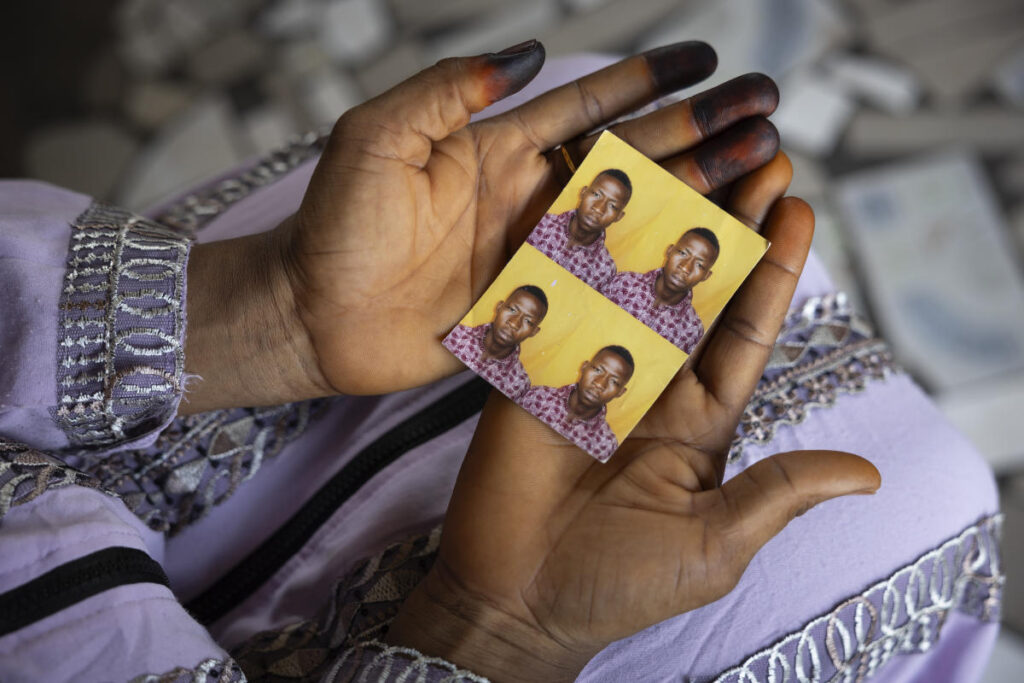ROME (AP) — It was still dark and quiet outside when Ousmane Sylla said his final prayer in the courtyard of an Italian migrant prison.
A few moments later the silence of dawn was broken. Chaos took over the Ponte Galeria detention and deportation center on the outskirts of Rome. The 21-year-old Guinean was found dead in an apparent suicide.
Fellow inmates who discovered his body screamed for help and frantically tried to revive him. When the paramedics finally arrived, Sylla was gone. Enraged by his death, migrants set fire to mattresses, broke down doors and threw stones at security forces inside the prison. The riots led to the arrest of 13 people.
Sylla’s death in February thrust the spotlight into the spotlight conditions in these de facto prisons for migrants, raising questions about Italy’s migration policy as the government, led by far-right Prime Minister Giorgia Meloni, promised to build more such facilities across the country, as well as abroad.
The detention and deportation centers were established in 1999 and have been described by lawyers and activists as ‘human rights black holes’. The Italian government says they are essential to stop migrants like Sylla from crossing the Mediterranean on smuggling boats.
Sylla’s journey from Guinea, West Africa, to Italy began in 2022. One of seven children, he dropped out of school during the COVID-19 pandemic. He learned masonry, but his real passion was singing. Sylla posted videos of himself on TikTok, rhyming and gesticulating with his hands like a rapper.
“His dream was to become a big star, that everyone would say his name and sing in front of everyone,” said his older sister, Mariama Sylla, from the family’s modest home on the outskirts of the capital Conakry.
To reach Europe, Sylla crossed the Sahara via Mali, Algeria and Tunisia. He headed to the Tunisian coast, where smugglers transport thousands of migrants from North Africa to Europe on rickety boats. This central Mediterranean route is known as one of the deadliest migration crossings in the world; Last year alone, more than 2,500 people died or went missing.
After nearly drowning in the Mediterranean Sea, Sylla finally reached the Italian island of Lampedusa on July 29, 2023.
Sylla tried to join his older brother, who lives in France. But when he reached the border town of Ventimiglia on August 9, 2023, he was turned away by French authorities. After lying about his age in the hope that this would increase his chances of obtaining a residence permit, Sylla was sent south to a center for underage migrants in the town of Cassino.
But the place was violent and dysfunctional, his brother and witnesses told AP. During his stay in Cassino, Sylla told them that he was repeatedly beaten up by other migrants.
According to witnesses who worked at the center, the facility lacked basic amenities such as proper clothing, psychological support and translators. Food deliveries, pocket money and mobile data cards were in short supply.
On October 13, Sylla received an order to deport him from the country. A day later, he was transferred to a detention and deportation center in Trapani, the first of two migrant prisons where he would spend the last four months of his life, according to Dario Asta, a lawyer representing Sylla.
Giuseppe Caradonna, another lawyer who tried to help Sylla, said that was when a psychologist first identified his mental health problems.
Caradonna informed local authorities on November 14 that Sylla’s mental and physical conditions made him unsuitable for detention and requested transfer to a specialized institution.
But the transfer request was rejected and on January 5, a judge ordered him detained for another three months.
A fellow migrant detainee from Guinea-Bissau said Sylla was taking daily medication provided by a doctor at the Trapani facility. When a riot broke out in the center at the end of January, most of it catching fire, they were both taken to the Ponte Galeria detention center near Rome.
As Sylla boarded the bus that would transfer him, a doctor handed him his file and urged him to show it to the staff at the new center so he could receive proper care.
But there is no evidence that the file was ever seen by a professional at the Rome detention center, and Sylla was never seen by the center’s psychologist. The center, operated by an international detention and shelter company called ORS, would not comment on Sylla’s treatment, but the contract confirmed that they had the responsibility to provide psychological care to detainees.
Four days later the young man took his own life.
Italy currently has ten such migrant prisons across the country, with the capacity to hold 700 foreigners under administrative detention at any time. Two of them, including Trapani, are closed for upgrades.
In theory, the purpose of the centers is deportation. But according to data from the Ministry of the Interior, only 52% of migrants in detention centers are successfully deported. The rest are eventually released with a self-deportation order because they are unable to work or regularize their situation. Many fall into the underground economy or become prey to criminal groups.
Rights groups and human rights advocates have for years exposed and documented the dire conditions in migrant prisons, including the lack of adequate health care, the overprescription of psychiatric drugs to keep detainees sedated, and limited access for their lawyers and family members.
Between 2019 and 2024, thirteen people had died – five by suicide – in Italy’s detention centres, where hundreds of suicide attempts and cases of self-harm were also recorded.
Sylla’s relatives blame the Italian government for his death.
“I’m so mad at them!” Mariama told AP shortly after his funeral in Conakry. “What they did to my little brother, they abandoned him like he wasn’t human. I’m furious.”
___
Risemberg and Diallo reported from Conakry, Guinea.







